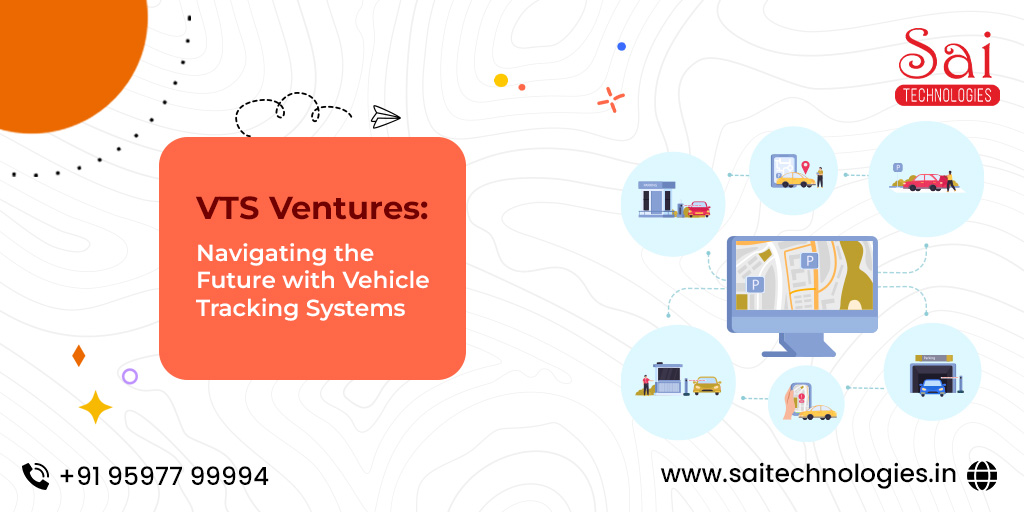VTS Ventures
Navigating the Future with Vehicle Tracking Systems

Sai Technologies
22 March 2024
Welcome, fellow explorers of the digital era! Welcome back to another thrilling installment of the VTS Ventures Vlog, where we delve deep into the realm of Vehicle Tracking Systems (VTS) and uncover how they are shaping the future of transportation and logistics. I am your host, and today, we embark on an extraordinary voyage through the technological wonders and practical applications of VTS.
- First and foremost, let us break it down. What exactly is a Vehicle Tracking System? Think of it as your vehicle's personal GPS on steroids. It is a sophisticated technology that enables you to monitor, track, and manage your fleet of vehicles in real-time. However, it goes beyond simply knowing the whereabouts of your vehicles; it involves utilizing data and analytics to optimize operations, enhance efficiency, and improve safety.
- You may be wondering, "How does it operate?" An excellent question! At the core of every VTS lies a combination of hardware and software components. The hardware typically consists of GPS receivers, cellular or satellite communication modules, and onboard sensors. These devices gather a wealth of data, ranging from location and speed to engine diagnostics and fuel consumption.
But here is where the enchantment unfolds – the software.
- VTS platforms employ advanced algorithms and machine learning to process all that data and provide actionable insights. Whether you are a small business with a few vehicles or a large enterprise managing a vast fleet, VTS empowers you to monitor everything from driver behavior to vehicle maintenance schedules.
- Now, let us delve into the real-world impact of VTS. One of the most significant advantages is enhanced fleet management. Imagine having the ability to track your vehicles' routes in real-time, optimize delivery schedules on the go, and even reroute vehicles to avoid traffic congestion or road closures. That is the power of VTS in action – streamlined operations, cost reduction, and satisfied customers.
- However, it is not solely about efficiency; safety is also a crucial aspect. VTS enables fleet managers to monitor driver behavior, ensuring adherence to safety protocols and promoting responsible driving. By identifying and addressing risky driving habits, VTS contributes to a safer transportation environment for all.
- Let's explore further the statistical landscape of Vehicle Tracking Systems (VTS) to gain a deeper understanding of their impact and potential. Recent research shows that VTS adoption rates are increasing globally, with estimates indicating that more than half of commercial fleets in developed nations have already integrated some type of tracking system. The advantages of VTS are not merely anecdotal - they are supported by solid data. For example, studies reveal that companies utilizing VTS solutions see an average decrease of 20% in vehicle idle time, resulting in significant fuel savings. Additionally, VTS has been proven to reduce unauthorized vehicle usage by up to 30%, thereby reducing risks related to theft and misuse.
- Furthermore, vehicles equipped with VTS demonstrate an average improvement of 15% in on-time delivery performance, leading to increased customer satisfaction and retention rates. In terms of safety, fleets with VTS report a significant decrease of up to 25% in accidents and road incidents, highlighting the technology's crucial role in improving driver behavior and overall road safety.
- As regulatory bodies worldwide place greater emphasis on fleet accountability and environmental sustainability, the adoption of VTS is projected to continue its upward trend, with industry experts forecasting a compound annual growth rate (CAGR) of around 15% over the next five years. These figures emphasize the transformative potential of VTS in streamlining fleet operations, enhancing cost efficiencies, and promoting a safer and more sustainable transportation environment.

